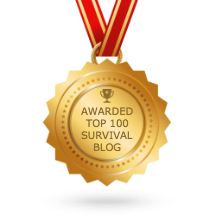By Mike Kuykendall
If you want to know the best way to prepare for the economic collapse that is coming our way, then you need look no further than your pantry. History shows that when there is a currency crisis or a total economic collapse, then the price of food skyrockets.
While we are likely to experience food shortages and food riots with the economic collapse, by no means does that mean that the food in our country will suddenly disappear. There will still be plenty of food for everyone, but it will be scarce due to panic buying, hyperinflation and supply chain issues.
The fact is that the grocery stores rely on daily deliveries to keep the shelves stocked, and if there is a panic, the shelves can empty out in a matter of hours. The distribution centers can then resupply the stores, but every major city has only a three-day supply of food.
When inflation skyrockets and banks close and suppliers begin to worry about getting paid for their shipments if stores go bankrupt, then they slow down or stop their deliveries until things calm down. Unfortunately, that means fewer deliveries to stores just as panic buying has emptied them out.
The crisis actually feeds on itself and makes the food shortages a self-fulfilling prophecy. As soon as the stores are at the point where they are waiting for the trucks to make deliveries so they have something to sell, the sale prices stop and the regular prices climb.
These "food shortages" are eerily like the famines in Third World countries that have people starving while food from relief agencies is rotting on the docks after being unloaded from the ships. The corrupt governments won't allow the food to be distributed in certain areas, as that is where the "rebels" are in their civil wars, so starvation ensues.
Not that we will have a civil war here in the United States, but the principle is the same. Plenty of food, but just not being distributed. Only here, the problem will be one of economics instead of civil war.
So if we understand what is coming and how it will all shake out, what do we do to prepare for an economic collapse and food shortages?
The first thing is to approach your food storage plan with a sense of urgency. Each and every week when you do your grocery shopping, double up on all personal items and non-perishable goods. Do the same with frozen foods until your freezer can hold no more.
If you do this each and every week, then 8 weeks from now, you will have an extra two months' of food stored up. The advantage is that you will have done it slowly, and not gotten overwhelmed with it all at once and given up. You will have steadily built an insurance policy that will cost you absolutely nothing, as you will eventually eat all the food you purchased.
After you have, at a minimum, a two month supply of food, then you can turn your attention to stockpiling staples like wheat, oats, rice, beans and other long-term food storage items. These can be incorporated into your weekly menu one day each week so that you become familiar with how to cook from scratch using these food storage items.
Long-term food storage items like these are very inexpensive, can be obtained in #10 cans that are packed to have a 20 year shelf life, and are easily stockpiled to extend your "food insurance" to 12 months or more.
By the way, do you want to learn how to get started with an easy Food Storage plan? If so, download my free MP3 HERE.
And to learn what 5 things you should always have in your car to be prepared for any emergency, you can go HERE.
Mike Kuykendall, Prepping Consultant






